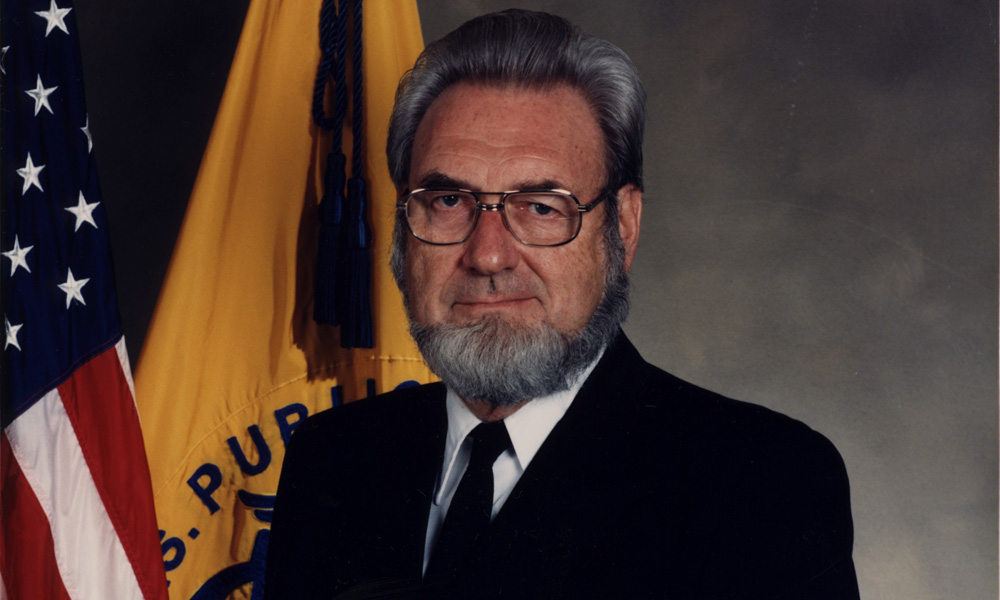
What Associations Can Learn From C. Everett Koop
One of the most-recognized figures in public health in the United States, C. Everett Koop, never let personal convictions get in the way of public service. Here's what you can learn.
When former Surgeon General C. Everett Koop entered public office, it was under a cloud of controversy. When he left it, he was widely respected, even by his critics.
While Koop, who died Monday at 96, was known as a groundbreaking figure in pediatric medicine, he made a his greatest impact as surgeon general in the administrations of Ronald Reagan and George H.W. Bush. Despite the controversy surrounding his 1981 appointment—based largely on his conservative views on social issues—Koop became a household name and authoritative voice on public health by the time he left the post in 1989.
Associations can learn a number of lessons from his work.
I stepped into a job that nobody gave me. I became, more or less by circumstance and pressure, the government spokesperson for AIDS.
Rely on the data, not just your convictions: While Koop was a deeply religious man who played a role in the growth of the anti-abortion movement among evangelicals during the 1970s, his religious convictions had much less influence on his work as surgeon general than his critics anticipated. When asked to address the psychological effects of abortion during the Reagan administration, he researched the issue in depth, talking to both sides of the debate and analyzing data. In the end, he wrote a memo to White House staffers arguing that “the available scientific evidence about the psychological sequelae of abortion simply cannot support either the preconceived notions of those pro-life or those pro-choice.” In a postscript on his life, The New Yorker’s Michael Specter explained what happened: “Koop turned out to be a scientist who believed in data at least as deeply as he believed in God.”
Don’t be afraid to become the public face of an issue: Koop, speaking to Wheaton College’s Center for Applied Christian Ethics in 2008, described how he gained a prominent role in the fight against AIDS. Despite his personal belief that homosexuality was wrong, he treated the issue as a public health crisis in need of objective solutions. ”I stepped into a job that nobody gave me. I became, more or less by circumstance and pressure, the government spokesperson for AIDS,” he said. While Koop later lamented the way an urgent public health issue became entangled with politics—“Our first public health priority, to stop the further transmission of the AIDS virus, became needlessly mired in the homosexual politics of the early 1980s,” he wrote, according to The New York Times—he nonetheless was one of the most important voices on stopping the spread of the AIDS virus.
You can prove your critics wrong: Reagan’s nomination of Koop as his surgeon general was controversial, with many groups, including the American Public Health Association (APHA), critical of the choice of a figure who had little previous experience with public health. “We’d be better off with no surgeon general than with Koop,” the association said at the time. Over time, Koop’s work as an advocate for public health won over many—including the APHA, which presented him with an Award of Excellence in 1989. In a condolence statement yesterday upon news of his death, APHA offered high praise: “APHA extends its deepest condolences to Dr. Koop’s wife and family, and celebrates the life of a true national hero,” said the group’s executive director, Dr. Georges C. Benjamin.
An editorial in The New York Times, published upon Koop’s departure from the Bush administration in 1989, noted that his success as a leader driven by public service won over many of his toughest critics.
“However tortuous the issue, Dr. Koop has consistently eschewed ideology for responsible discussion,” the paper wrote. “He leaves the Bush administration with a distinguished example of leadership.”
How can you take a cue from the late Dr. Koop? When faced with challenges at odds with your personal views or the conventional thinking within your association, how do you approach such problems fairly and objectively? Let us know your thoughts in the comments.
(U.S. government photo)






Comments